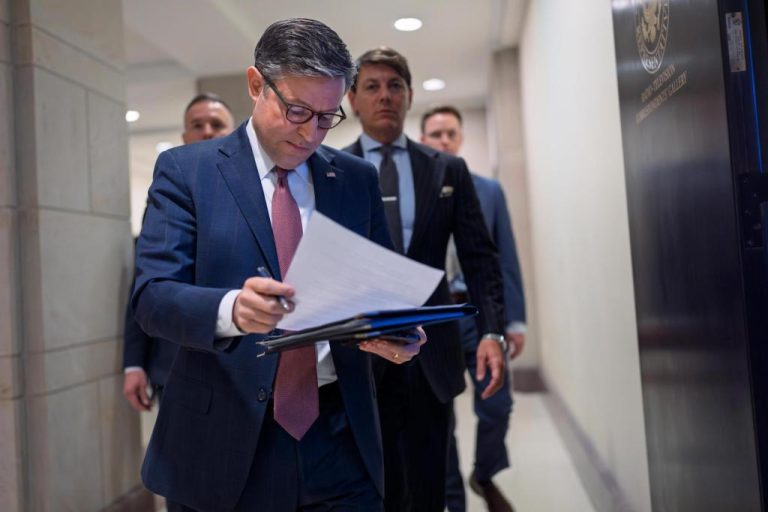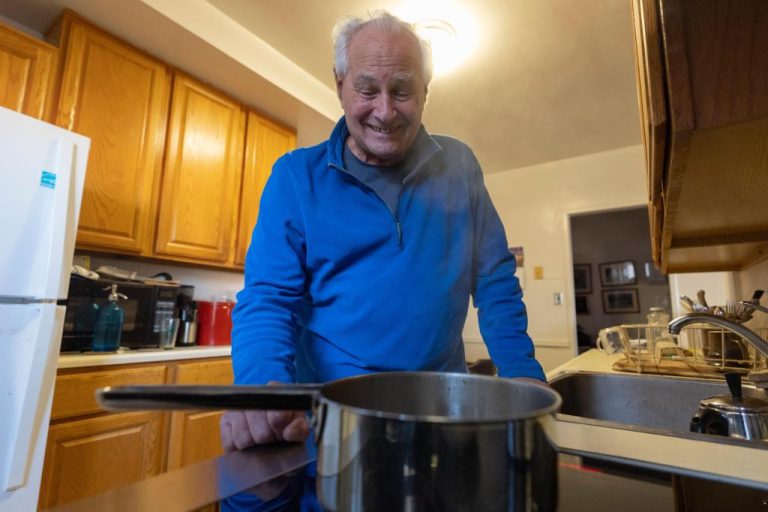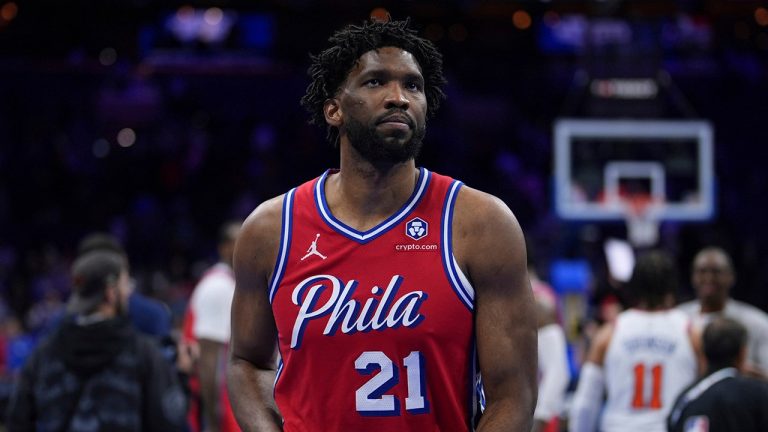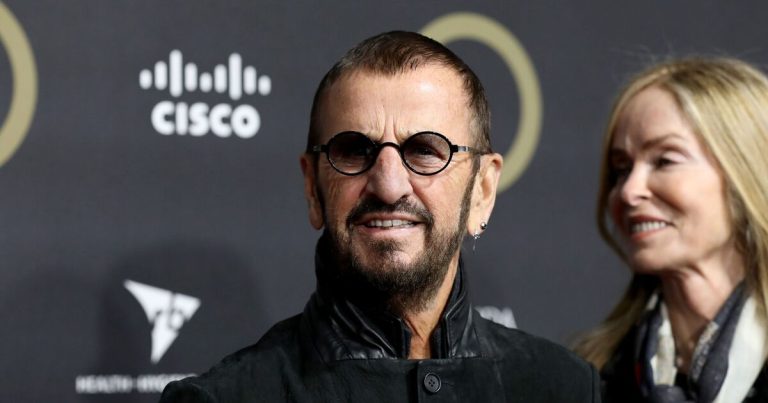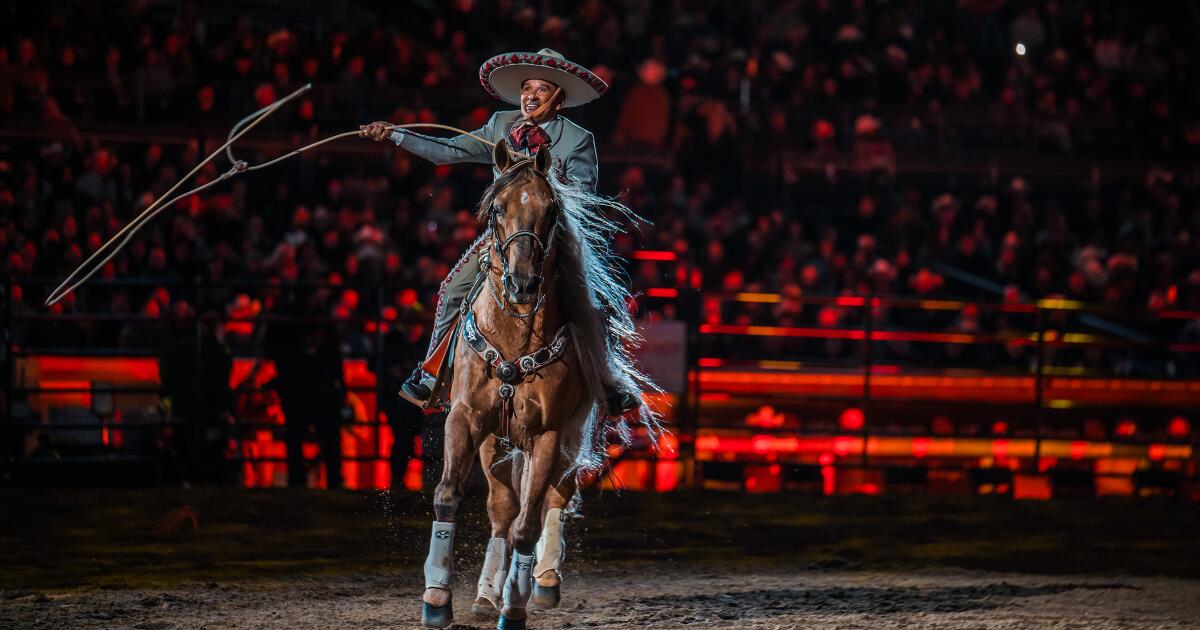
Local tribal leaders and charro groups are lobbying San Diego to put the brakes on a proposed citywide rodeo ban, contending city leaders have been duped by activists and need to thoroughly educate themselves.
While the ban wouldn’t apply to local tribes because their land is outside the city limits, they’re fighting it because they believe bans proposed recently in San Diego and Los Angeles could spread statewide quickly.
They say San Diego’s ban threatens longtime traditions because rodeos are a cultural practice with roots that have been intertwined with Black, Indigenous and Mexican American communities for centuries.
“The city has not equipped itself with accurate information to craft sensible, equitable policy, and we fear that it could lead to a dismissal of our cultural history and heritage in San Diego,” the groups said in a joint letter to the city. “In the spirit of inclusivity, we urge the City Council and its staff to participate in a dialogue and begin their educational journey on our practices and values.”
Aides to Councilmember Kent Lee, who proposed the ban last month, have agreed to a Feb. 29 meeting at City Hall with the tribes and other members of the newly formed San Diego Rodeo Alliance, including charros — Mexican American cowboys who stage their own versions of rodeos.

Rhen Richardson ropes a steer during the San Diego Rodeo at Petco Park on Friday, Jan. 12, 2024.
(Meg McLaughlin/The San Diego Union-Tribune)
“We look forward to developing this ordinance, which would apply in the city of San Diego and not affect tribal lands, with input from Indigenous communities and members of the public,” Sara Kamiab, Lee’s chief of staff, said by email this week.
“I’m confident we can be sensitive to cultural traditions while we work toward ending the needless suffering of animals,” Kamiab said. “People are very concerned about the obvious harm happening to animals at these events, so something needs to change.”
The rodeo alliance disagrees with the claim that animals are being harmed at any local events, saying no local groups use electric prods, sharpened spurs or other equipment or techniques criticized by animal rights groups.
“The problems these groups are bringing up are not things we even see in San Diego,” said alliance chair Jed Pugsley, contending activists scare people with videos from other states. “We want the opportunity to show these council members what’s actually happening at the San Diego rodeo, and not at a rodeo 5,000 miles away with people that we don’t know.”
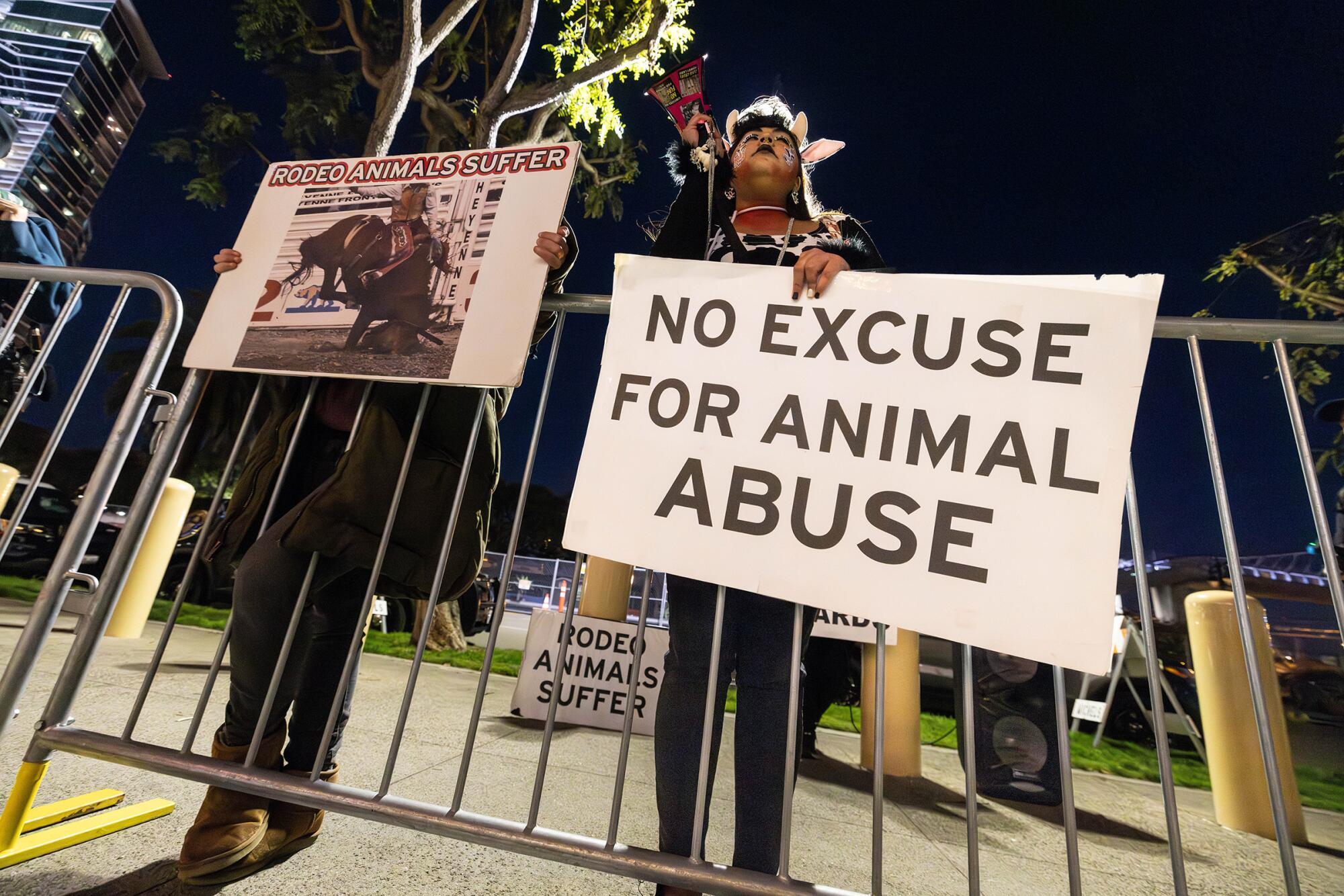
Sidney Jesperon and Samantha Prado protest the San Diego Rodeo at Petco Park on Friday, Jan. 12, 2024.
(Meg McLaughlin/The San Diego Union-Tribune)
Pugsley stressed that no violations were found during the entire three-day rodeo at Petco Park in January — an event that prompted the proposed San Diego ban. He said veterinarians were on-site the entire time.
Members of the alliance said they were pleased in December when the Los Angeles City Council sent that city’s proposed ban back to committee for further evaluation.
“Like LA has already done, it’s time to go back to the drawing board, engage in dialogue with the constituents this actually impacts, and ensure accurate representation of our cultural values,” the alliance said in its letter to the city.
While the San Diego ban wouldn’t immediately affect the tribes located outside the city, it does threaten activities that charro groups host within the city limits in San Ysidro.
Ramon Jara, chair of the Charro Coalition of San Diego, said it would be a major blow for those events to get banned.
“It’s more than just a sport — it’s a tradition, and it’s part of my heritage and culture,” he said. “It’s really helped keep families together. It’s helped keep the traditions alive of horsemanship and caring for your animals.”
In addition to the cowboy events, there are also equestrian events for girls called escaramuzas, he said.
“You get to see your dad and brothers on the top of a horse along with your daughter and nieces,” he said. “It’s just a great family atmosphere.”
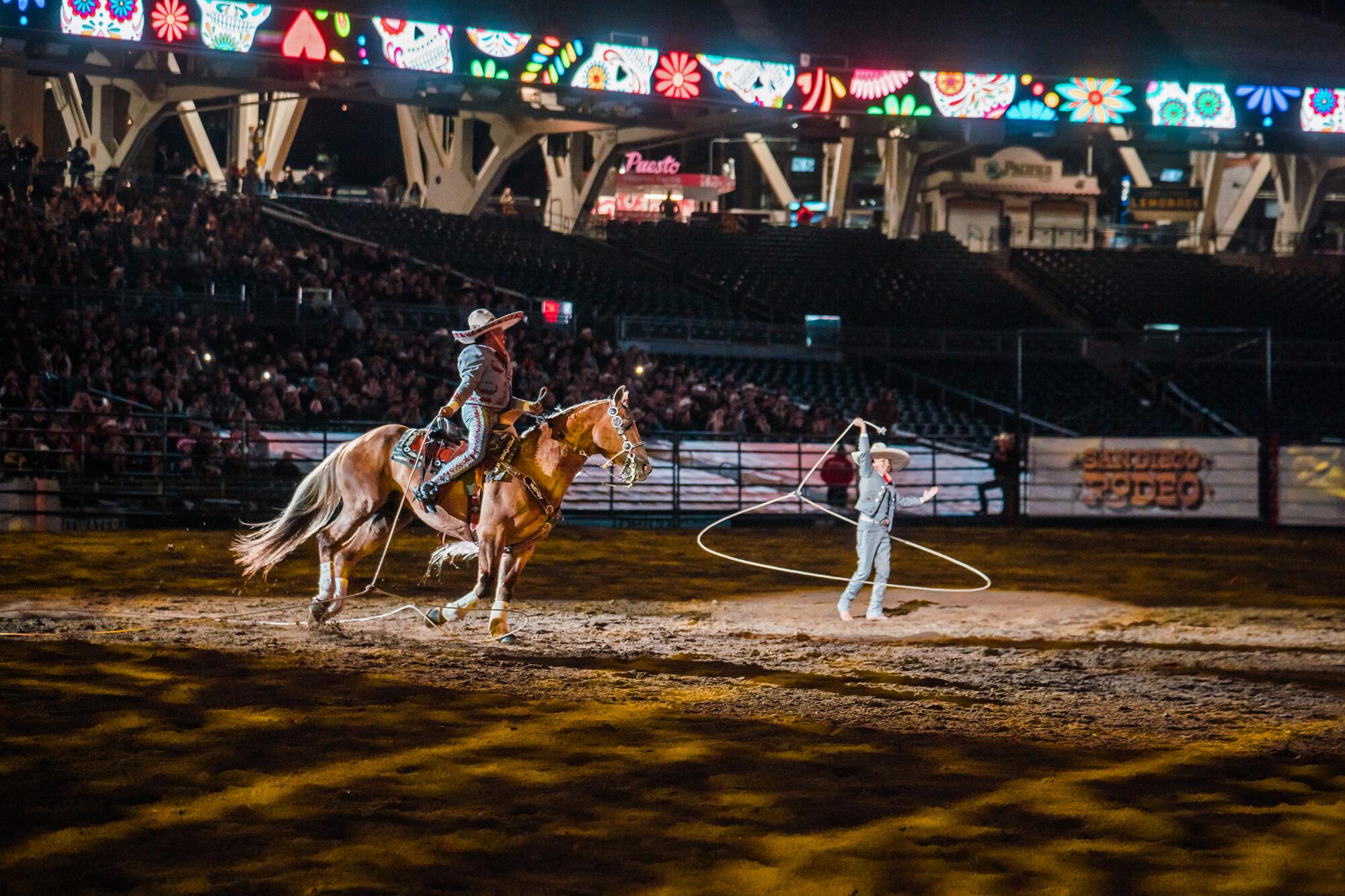
A charreria performance at the San Diego Rodeo at Petco Park in January.
(San Diego Rodeo Alliance)
John Christman, tribal chair of the Viejas Band of Kumeyaay Indians, said it’s been a long tradition for local reservations to have places for wild horses and raising cattle — the animals that are part of rodeos.
“We’re still ranching here, and we have a number of families with cattle,” he said. “That’s still part of the culture, and I hope it always will be.”
Last fall, rodeo critics lobbied the City Council to approve an ordinance banning the use of animal torture devices during rodeos. But Lee’s ordinance would go beyond that to ban rodeos no matter what devices are used.
Leaders of the San Diego Rodeo Alliance said they would be open to a city ban on devices like prods and spurs, saying no local groups ever use those devices.
“We know sometimes other people participate with electric prods,” said John Shockey, a member of the alliance and a rodeo promoter. “It has nothing to do with ourselves — with our level of animal athletes and human athletes.”
Lee said last month he plans to introduce the proposed rodeo ban during an upcoming meeting of the council’s Land Use and Housing Committee.
“Entertainment is not a justification for cruelty toward animals,” Lee said at the time. “This ordinance will ensure that no more animals will needlessly suffer under the guise of entertainment in San Diego.”
In addition to lobbying for a citywide ban, animal rights groups sued the city in November claiming that rodeos involve shocking horses in ways that violate state law.
Superior Court Judge Joel Wohlfeil has scheduled a March 22 hearing on that lawsuit, which was filed by a group called Showing Animals Respect and Kindness.


